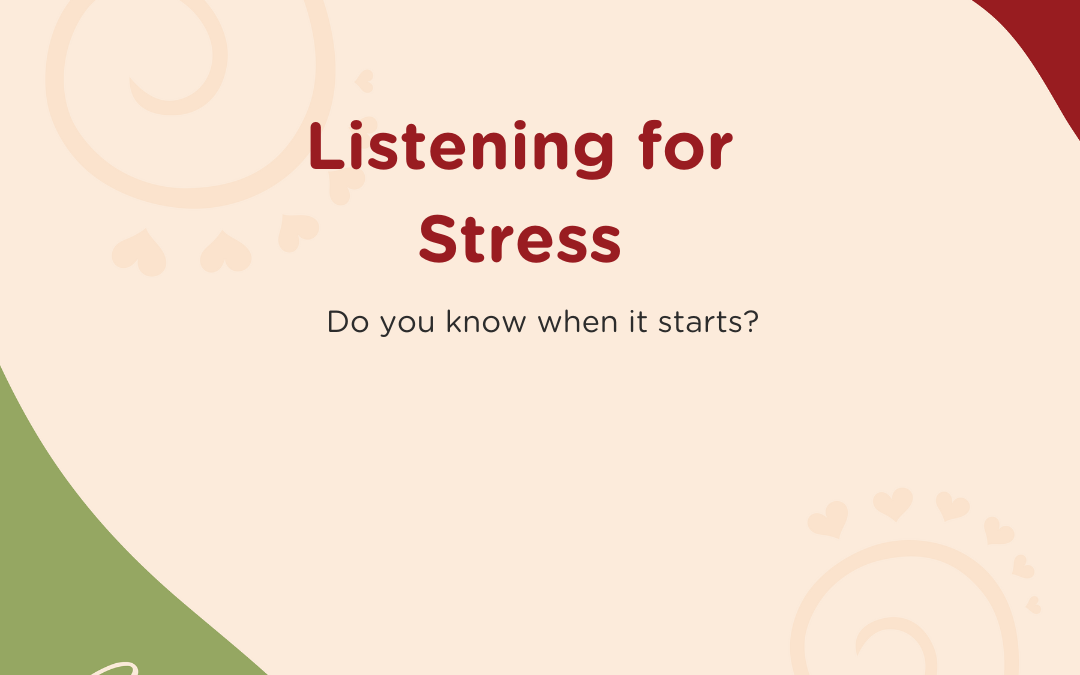There comes a point when the stress that serves us moves into stress that overwhelms us.
As adults, we’ve come to recognise our tipping points – usually through hard-won experience. Trial and error over time have given us enough awareness and understanding to know what works for us and what doesn’t.
But our rangatahi don’t have that experience … yet.
As they grow, they will be exposed to learning challenges that gift them with the opportunities to develop their:
- Awareness
- Understanding
- Knowledge
And be able to turn it into
- Wisdom.
That’s where we, as parents, come in. It’s our job to teach our rangatahi these skills.
And the first way they’ll learn is by watching what we do.
Modeling is a powerful teaching tool. Our rangatahi are hungry for knowledge about the way the world works.
“They will do as we do before they do as we say.”
Three Top Tips
- Be aware
Tune into your own stress levels and the words you use when you are:
- relaxed
- becoming stressed
- stressed
Now think about the body language you use to match all these patterns, right down to the breathing you do.
Do you notice a difference?
When you’re wandering down the beach enjoying a Sunday morning stroll you’re far more likely to be saying things like, “look at that gorgeous …” and your body posture will be relaxed. Your shoulders will be lower, your hands open, you’ll be smiling and your breathing will be steady and deep.
Now think about what you’re saying on Sunday evening as you get ready for work the next day. It’s more likely to be, “where is my …” and your body will be winding itself up for a busy week. Perhaps there is some tension creeping into your jaw, or shoulders. Your breathing may still be slow, but not as deep.
Let’s fast forward to the Monday morning commute to work. You’ve got all the to-do’s running through your mind, you’re navigating traffic and despite your best-laid plans from the night before you are running a bit on the late side. You may be saying something along the lines of, “why am I always late? What’s that idiot doing?” Your hands will be tight on the steering wheel and the tension is back in your shoulders.
- Grow your understanding
Through awareness comes understanding. Now that you’ve noticed these changes, it’s time to think about where they’re taking you.
As your stress levels grow, will you be more inclined to react to any unexpected or unwelcome event in your life, or will you be in the position to respond with compassion?
Do you show up being the best version of yourself when your body is at these increasing stress levels?
- Strengthen your knowledge
Keep looking for the ways stress is affecting you. Listen to your words and your body language. When you can predict tipping points you can change outcomes.
All this leads us to …
A position where we know better, and, therefore, we can do better.
Not just for ourselves, but also for our rangatahi.
Sharing these steps of awareness, understanding, and knowledge is a great way to change your behaviour around stress AND use it to open conversations about stress with your rangatahi.
Enjoy the changes.
Book a complimentary introductory kōrero with Melanie to start the changes you’d like to see in your relationship with your rangatahi.


Stress is the enemy of a good memory. When the amygdala is alerted by something stressful and the fight/flight neural response continues without the opportunity to relax and return to normal, brain processing of information slows and forgetfulness or brain overload occurs. Good advice in this article!